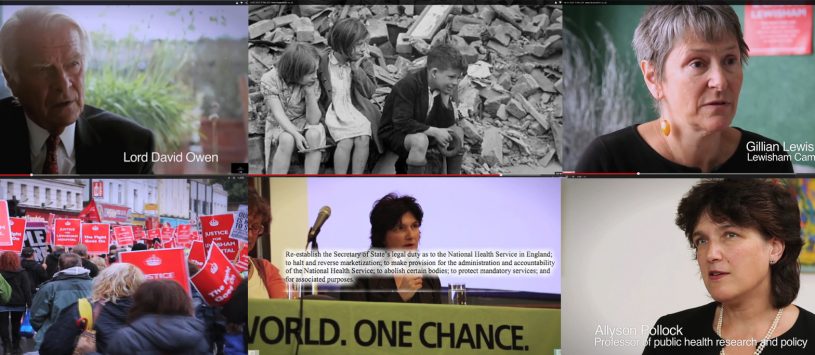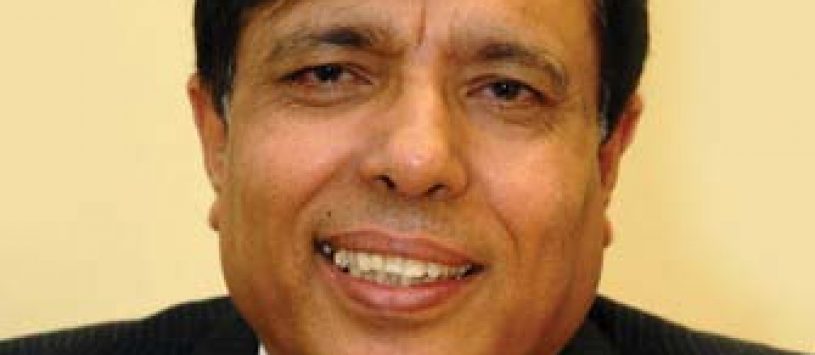This article orginally appeared in the Tribune, 25th January 2015
In 2010, the National Health Service fell to its least importance as an issue among voters since 1986. Now it’s back at the top of the political agenda. Just as it was in 1999. Why? Because, after four and half years of the Conservative-led coalition, healthcare is in crisis. Markets haven’t worked, inspection hasn’t worked, demand management has failed, morale is at an all-time low and workforce planning is botched. The major consequences of the 2012 Health Social Care Act has been that healthcare in England is viewed as a business rather than a service.
The key political challenge for many is how to persuade politicians that they are wrong to believe health should be viewed in this way, and to explain how we can sensibly reinstate the fundamentals of the NHS that are being dismantled in England – fundamentals that elsewhere in the United Kingdom remain intact and widely supported.
The NHS is one of the most cost-effective, highest quality and most equitable healthcare services in the world. Nevertheless, it now stands on the brink of extinction.
Citizens of countries which have mainly private sector healthcare systems – as we soon will have if the coalition is allowed to complete its reforms – regard the NHS as a jewel beyond price: safe, high-quality care available to all no matter how poor. This is the most civilised accomplishment the British ever achieved. There is even a nationwide activist movement in the United States devoted to trying to introduce an NHS-style model in their country. And yet our own Government is itching to convert our NHS from a public service to a set of business opportunities for US-based transnational insurance and health provider corporations.
The Coalition’s Health and Social Care Act is leading to the rapid and unwanted expansion of large commercial companies in the NHS. It will denationalise healthcare through the initial “hand-washing” Clause One of the legislation which divests government responsibility for service coverage to competitive markets controlled by private sector-dominated quangos.
GPs have been herded en masse into clinical commissioning groups (CCGs), statutory insurance schemes which will implement the transition from the guarantee of universal care to limited financial care allowances for each individual. They are presiding over the parallel competitive markets of tendering and Any Qualified Provider (AQP) which the coalition and its private sector advisors intend will privatise hospital care in England.
GPs lack the necessary legal and finance training to discharge these responsibilities, but have been given them with a cynical accompanying commentary in the White Paper
Equity and Excellence, about “GP empowerment”, so that patients and the general public will blame the withdrawal of NHS services and the fall in quality of those privatised on doctors rather than the Conservative Party.
The Government is now trying to make GPs relinquish their Minimum Practice Income Guarantee (MPIG), which is what ensures the financial stability and continuity of family practices. It is considered “anti-competitive” by privatisation advocates, in that a competitive market demands some providers go out of business so others can easily enter the market. The Government has decreed that GP practices are to be made vulnerable to insolvency and closure, so corporate providers can replace them. Therefore, the MPIG must go. In other words, the Government has decided to replicate the example of the Camden Road GP practice, which was tendered out, and the incumbent GPs’ bid lost, so the contract went to an American insurance company which allegedly and illegally transferred it to a corporate GP service provider after two years. This company then decided it wasn’t a profitable enough business, and shut it down, leaving 4,700 people without access to GP and referral services. Many of them were unable to find any local alternative. Observers saw this as a cautionary tale, but apparently Health Secretary Jeremy Hunt finds it so admirable that he is removing the protection which stops similar things happening throughout the country.
The coalition has no electoral mandate for what it has already done to the NHS, let alone what they it is now trying to do. We are witnessing an attempt to make an end of the NHS as a publicly provided, publicly financed body, so as to please private companies. In this sort of health service, the chronically and terminally ill, the mentally ill, those from poorer socio-economic groups, and the elderly are likely to lose out. Commercial providers are most interested in affluent people who are in good general health whom they can talk into having expensive elective procedures. It is hard to turn a profit from caring for seriously ill people, so their care will be left to the increasingly cash-starved CCGs whose funding will be drained by “money following patients”, as insurance companies arrange for their insurees to move their personal health budgets from their CCG to their insurer. As healthy people take their budgets out, while ill – hence uninsurable – people stay and require care, referral spending will have to be reduced across the CCG as the budgetary pool it uses to buy care shrinks. The contraction in service coverage and content that will be forced on CCGs will encourage more take-up of private health insurance followed by more money following patients out of CCGs into insurance companies. This vicious circle will quickly reduce the service CCGs can offer to almost nothing.
The Government’s dismantling of the National Health Service has a genealogy running from Margaret Thatcher through the years of Tony Blair to David Cameron’s coalition. The last Labour Government laid the essential groundwork for undermining the NHS. Market structures, foundation trusts, GP consortia and the introduction of private corporations into commissioning were all products of the ill-conceived Labour vision of “public service reform” sponsored by private sector interests.
For the past two decades, the leaders of all three main political parties are wedded to the concept of marketisation of healthcare. Do our gullible leaders really believe the “chosen” private healthcare firms will treat all patients fairly, and not just select those based on the criteria of how much profit will be returned? The commissioning system makes it easy for private providers to cherry-pick from the tasks they bid to do so as to ensure they maximise their income from the NHS while minimising their costs. This has the effect of maximising their profits overall. From the perspective of both patients and taxpayers, this bias is highly undesirable – a recipe for overcharging, overtreatment and corner-cutting on safety.
These problems can be acceptably controlled by tight regulation, but unfortunately we have a Government wedded to the lightest of regulation because this “keeps costs down for business”. Ministers ignore the risks to the public of failing to regulate healthcare providers which have an incentive to run unsafe services because the money not spent on ensuring safety contributes directly to their profits. The real interest in “choice” is not among patients, for whom we could simply have complete countrywide choice of referral care which existed before market reforms started. Those who are for the kind of choice which these reforms will allow are providers, who will soon be able to decline to deal with cases which may be expensive to treat, usually those patients with complex or multiple conditions. They are the patients who need the NHS most, and yet they will be forced to rely on the ever more cash-strapped CCGs.
It’s time we dropped the unfounded stereotype established by intensive neoliberal propaganda that “private equals best”. The NHS is rated as one of the finest health services in the world, according to the latest Commonwealth Fund study. It is by no means perfect, but of the 11 countries surveyed, the United Kingdom came out on top, with the fastest access to GPs, the fewest medical errors and the best co-ordinated care.
The obvious area to cut unnecessary bureaucracy is the market apparatus of commissioning and competition regulation which benefits only private sector providers, not patients, and wastes a great deal of precious time and money. The marketisation of the NHS has seen the proportion of the budget devoted to administration rise from 5 per cent to 14 per cent, so very worthwhile savings could be made by rationalising service provision according to medical needs rather than market forces. We could start by axing Monitor, a regulator paid by the public sector and run by representatives of the private sector, which is engaged in two tasks: privatising NHS hospitals and ensuring the CCG system does not disadvantage the private sector.
If the Department of Health and the management consultants it put in the driving seat had not addressed every problem in the NHS as an excuse to recommend more private sector involvement, we might be much further forward in fixing the NHS’s real problems, such as the internal hostility to staff who alert others to dangerous problems. Scotland and Wales have already rolled back market reforms, and been rewarded by an immediate drop in costs and improvement in outcomes. It is clearly in the country’s interest for England to follow their example, but instead our Government would prefer to conclude more contracts with the likes of G4S, which already manages facilities for 210 hospitals and health centres, as well as running ambulance services.
Far from “private being best” in service provision, a little consideration of the nature of the endeavours of private and public sectors shows that private sector efficiency may not be at all to the advantage of either payers for services or users of services provided. For while the public sector seeks to maximise quality and coverage of needed services, the private sector aims to provide services in order to maximise profits.
For public limited companies, this is more than an opportunity; it is the duty of the directors. Thus the private sector faces irresistible forces against maximising quality because company law forces it to choose profit over quality, requiring systematic satisficing on quality in order to maximise profit. (Satisficing is producing the minimum quality that the company can still get paid for and not get taken to court over.)
Since the Government is intent on forcing for-profit providers into the NHS, the only way for the public sector to ensure a safe healthcare system is to inspect all activities where risks might arise, and inspect them rigorously, thoroughly, frequently and always unannounced. The cost of this level of regulation is so high that it adds substantial extra cost to the already more expensive market system, but without it, the level of quality to which private providers will sink in order to maximise their profits will soon pose significant threats to patients. We saw this story play out at the private equity-owned Winterbourne View and its sister homes, where cost economies resulted in abuse of vulnerable people by unsuitable staff, some of whom have been jailed for their crimes against residents.
If we don’t want tragedy upon tragedy, we must stop organising our health services through arrangements such as these which have endemic quality problems due to perverse incentives towards satisficing on quality in a lax regulatory environment that enables rank exploitation of patients.
The terrible state of the healthcare system in the US reinforces the point that the privatisation of state-funded healthcare delivery is not something that is welcome in England except by big business and those paid to expedite its entry to the NHS. The US government spends more on healthcare than any other nation, close to $2.4 trillion a year. But even though that is 150-200 per cent of the amount that other developed countries pay, on top of that most US citizens also have to buy health insurance in order to have some chance of accessing appropriate care if they fall ill. Only forces veterans and the extremely poor access free care, and only the veterans enjoy care of a standard usual in the NHS. Extraordinarily, given the disproportionate amount it spends, the US’s health indicators are worse than those of all other developed countries, and indeed worse than those of many middle-income countries.
In the United States, reliance on private health insurance sees the rich treated and the poor not – and paying for medical care at US market rates can transform a rich person into a poor one very quickly. That is what happens to anyone who develops a long-term condition, since insurers don’t pay for pre-existing conditions to be treated. That must be paid by the patient. The uninsured poor spend their lives hoping they don’t get sick, because if they do they will have only the extremely basic “Medicaid” cover that US states offer to paupers who cannot afford private health insurance. In the US, more than 49 million people lack health insurance, while the latest figures from the Commonwealth Fund found that a quarter (27 per cent) of US adults were unable to pay, or encountered serious problems paying, medical bills.
While the rich can afford insurance adequate to pay for the care they need, they fall victim to the perverse incentives in the system to over-treat patients: they may be harmed by interventions motivated by supplier-induced demand which pays medical providers more if they do more work on the patient. The UK payment by results payment system these perverse incentives, and the Hospital Corporation of America has donated £17,000 to the Conservative Party to support its appeal for more NHS work, despite being in serious legal trouble in the US for allegedly carrying out unnecessary heart surgery.
The fact that private healthcare is not fit for purpose can be seen in infant mortality data from four countries in the Americas – two rich, two poor, two with private healthcare and two with publicly run healthcare. Infant mortality is a sensitive whole-system indicator for medical services: most babies should survive infancy, a very few will inevitably die due to accidents. Minimum rates are probably not far below the 0. -0.3 per cent infant mortality achieved in Scandinavia. Canada’s spend is much lower than the US’s, but its outcomes are superior; and, extraordinarily, Canada’s performance is matched by low-spending Cuba. Here we see that good medical care need not be expensive. In fact, spending more money does not aid outcomes, but it does seem to make a big difference whether services are delivered by private sector or public sector.
Market forces predictably drive down quality as companies strive to win contracts and maximise their payments from public funds while spending as little as possible on service provision in an environment hostile to the “red tape” of essential regulation. NHS inefficiencies (such as they are – in truth, few beyond the market mistake) will be replaced by service deficiencies caused by the profit motive.
Private sector providers want to de-professionalise and down-skill the practice of medicine in this country, so as to make staff more interchangeable, easier to fire, more biddable, and above all, cheaper. They like to replace doctors with nurses, and nurses with healthcare assistants. They especially like to replace skilled staff with computer algorithms which do not have any employment rights.
We have seen where that cost-saving “innovative” strategy leads in the case of the mortgage market, with money lent for consumption to people who cannot repay it, while small businesses are starved of essential funds to weather hard times and expand their business when opportunities arise. We can expect much the same from “innovation” in the NHS. NHS 111 has been using front-line staff who have only 72 hours training, so under-equipped for their task that ambulance usage has soared for service users as minimally trained staff tried to avoid tragedies by erring on the safe side. This “cost-saving” measure must have cost far more overall as a result. Yet we face another round of government enthusiasm for high-technology healthcare solutions, as always promoted by the companies which hope to land the contracts.
We need, not more e-medicine, hotlines and nurse-led clinics, but GP services and local accident and emergency units properly staffed around the clock. Yet the government is shutting the latter as fast as it can and deliberately financially destabilising the former.
A Hartlepool three-year old died recently because he was not taken to an A&E but to an urgent care centre. The low-qualified staff there recommended painkillers instead of the urgent emergency medical care he needed, and a few hours later he died, not able to reach an A&E until it was too late to save him. This disgraceful incident was noted by, among many others, the Mail on Sunday, which has delivered almost 30,000 appeals from readers to Jeremy Hunt, but they have elicited no response whatever from the man in charge of the NHS.
In 2005, McKinsey recommended the closure of 30 per cent of London A&Es in order to sell the land for housing development. McKinsey seems to be able to influence the government’s plans for the NHS. In contrast, the concerns of the public and of NHS staff are entirely ignored.
For professionals delivering care, the commercialisation of the health service will encourage a situation where clinical decision-making is increasingly influenced by financial considerations leading to the erosion of the social contract between doctors and patients. This is an affront to the public service ethos that binds the NHS together and makes it the most loved institution in the country. The traditional role of doctors as the true advocates of patients will soon become history. The CCGs established to spend £60 billion on commissioning will become rationing committees, choosing which services should be cut and which groups of patients should lose out and be denied the care they need. There will be intolerable pressure on clinicians to dilute their needs-led approach to patient care and instead consider all manner of economic and other factors. Patients should be worried, because GP practices are not set up to do this. They are clinical enterprises, not businesses.
Saying “no” to patients does not come easily to GPs, while many CCG staff have reportedly yet to realise that their job is to ration services and force GPs to deny needed care to their patients. The most compassionate and conscientious GPs will be the first to fail financially because they will find it hardest to deny treatment to their patients.
As patients increasingly become clear about the conflicts of interest created for GPs by the new commissioning regime, when they understand that a GP can increase their practice’s income by denying care to patients, the trust between GPs and patients may be permanently poisoned.
A continuous evolution of the NHS is needed to resolve its problems, but this remains absent. Since Alan Milburn’s tenure at the Department of Health, the usual response to a problem has been not to try to solve it, but to use it to justify some extra piece of privatisation.
The question is: who is the NHS for? Is it for patients? Or for its commercial suppliers and would-be suppliers? The Private Finance Initiative experience has clearly demonstrated the true nature of “public-private partnership” – an arrangement in which politicians arrange for their associates in the private sector to make a large amount of money, at minimal risk, out of public budgets and provision of public services.
It is time to reject the market ideology that has plagued the NHS for more than 25 years and wasted billions of pounds in the endeavour to get more of the NHS budget into the hands of private companies.
The end of the NHS as we have known and understood it in England will take place before 2020 if whichever party (or parties) that wins the 2015 general election does not change the 2012 legislation.
If the NHS is to survive, we need to get back to basics – a health service which is properly funded, adequately staffed, with patients and clinicians in the driving seat. A healthcare system which is public, integrated, not a two tier, part-privatised health market. It’s not too late to turn things around, but if we don’t act now, it soon will be.
This article is taken from the Tribune, 25th January 2015
 Mike Weir
Mike Weir Dr Eilidh Whiteford
Dr Eilidh Whiteford Dr Paul Monaghan
Dr Paul Monaghan Dr Philippa Whitford
Dr Philippa Whitford Chris Law
Chris Law Douglas Chapman
Douglas Chapman John Nicolson
John Nicolson Dr Lisa Cameron
Dr Lisa Cameron Stewart McDonald
Stewart McDonald Roger Mullin
Roger Mullin Ian Blackford
Ian Blackford















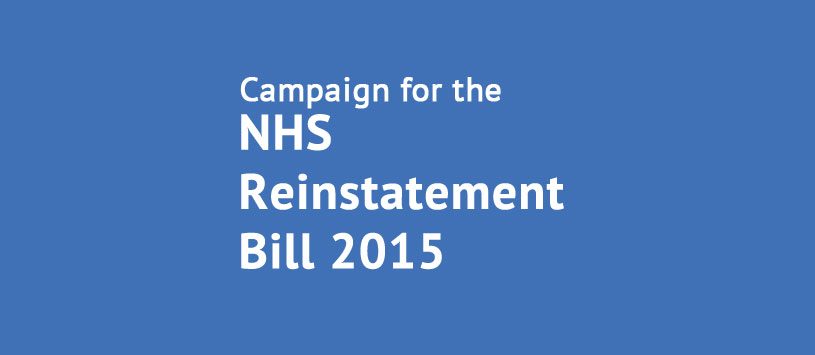
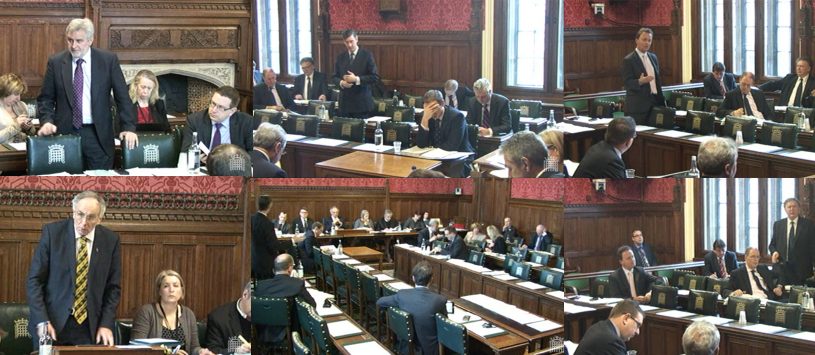



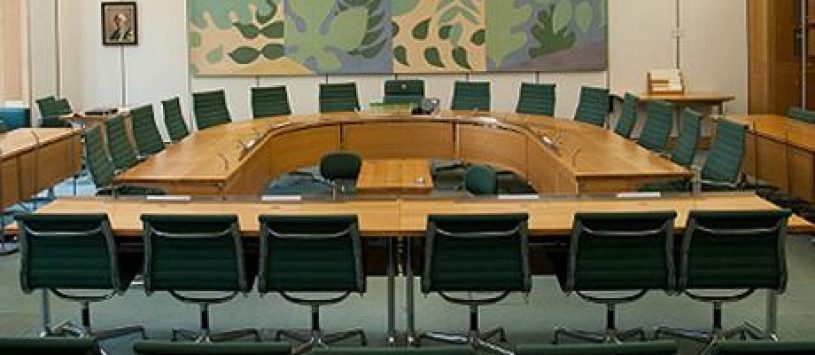
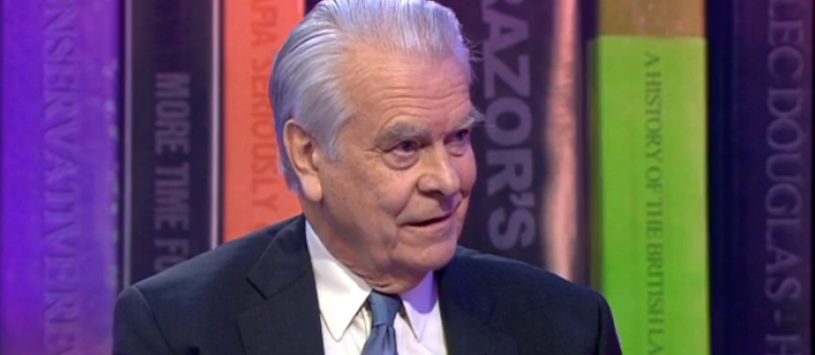
 You can watch the 15 minute programme on BBC’s iPlayer here.
You can watch the 15 minute programme on BBC’s iPlayer here.
